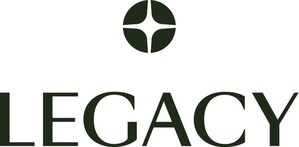Legacy® Applauds New Draft Recommendation by U.S. Preventive Services Task Force That Stands to Save Lives by Detecting the Nation's Deadliest Cancer Early
WASHINGTON, July 29, 2013 /PRNewswire-USNewswire/ -- Americans at increased odds of a potentially lethal lung cancer diagnosis may soon be able to seek out the most promising technology available to detect it early and ultimately have screening covered by insurance, including Medicare. Today's announcement by the U.S. Preventive Services Task Force (USPSTF) to upgrade its recommendation to a "B" Rating marks a most welcome yet overdue recommendation for annual computerized tomography (CT) scans for current and former smokers, age 55-80, with a history of heavy smoking (two packs per day over 20 years or one pack a day over 30 years).
(Logo: http://photos.prnewswire.com/prnh/20101101/DC86294LOGO)
Legacy has long been a vocal proponent for such screening, leading the early charge within the public health community. "This is a significant step in the right direction but there is more to be done," said Cheryl G. Healton, DrPH, president and CEO of Legacy. "While we disagree with some of the elements of this new recommendation -- including the fact that the age ranges identified as those in the highest risk population are too narrow -- this does not diminish our overwhelming support for the USPSTF's endorsement of early screening for lung cancer as a watershed moment sure to save hundreds of thousands of lives, she said." "We'll address the issues that we strongly feel need strengthening through the comment process," she added.
The risk of developing lung cancer goes down gradually after a smoker quits but it never returns to the level of a 'never smoker.' Many smokers who have quit and remained smoke-free for more than 15 years can benefit from CT screening too, especially those with a family history of lung cancer.
Lung cancer is the number one cancer killer in the U.S. and early detection is critical. Approximately 158,000 Americans lose their lives to lung cancer annually, with smoking contributing to 80 percent and 90 percent of lung cancer deaths in women and men, respectively. Once this new recommendation is approved, the prospective candidates for screening must be educated about their risks for lung cancer and directed to institutions that can answer questions about and conduct responsible screening. "This is a critical health benefit and once it is finally approved, will be a life-saving one as well – for those Americans who need it most," Healton said.
A key component in preventing it is to arm smokers with everything they need to quit. Legacy's BecomeAnEX bilingual smoking cessation program (www.BecomeAnEx.org) provides tools, information and a robust online community to support people as they quit.
LEGACY
Legacy helps people live longer, healthier lives by building a world where young people reject tobacco and anyone can quit. Legacy's proven-effective and nationally recognized public education programs include truth®, the national youth smoking prevention campaign that has been cited as contributing to significant declines in youth smoking; EX®, an innovative public health program designed to speak to smokers in their own language and change the way they approach quitting; and research initiatives exploring the causes, consequences and approaches to reducing tobacco use. Located in Washington, D.C., the foundation was created as a result of the November 1998 Master Settlement Agreement (MSA) reached between attorneys general from 46 states, five U.S. territories and the tobacco industry. To learn more about Legacy's life-saving programs, visit LegacyForHealth.org. Follow us on Twitter @legacyforhealth and Facebook www.Facebook.com/Legacy.
SOURCE Legacy
WANT YOUR COMPANY'S NEWS FEATURED ON PRNEWSWIRE.COM?
Newsrooms &
Influencers
Digital Media
Outlets
Journalists
Opted In





Share this article